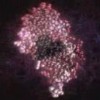Uwe Hilgert
This user hasn't shared any biographical information
Posts by Uwe Hilgert

Mixed-up Nomenclature?
Jan 20th
An article in the December 24, 2009 issue of Molecular Cell, “A Reconfigured Pattern of MLL Occupancy within Mitotic Chromatin Promotes Rapid Transcriptional Reactivation Following Mitotic Exit,” had me thinking how misleading genes and proteins are often named. The publication details the function of a protein, Mixed Leukemia Lineage (MLL), which attaches to DNA prior to cell division. MLL “bookmarks” genes that need to be expressed immediately after the cell divides. The protein’s function is not, however, to cause leukemia. Its name – Mixed Lineage Leukemia – rather reflects the story of its discovery as it was found during research into More >

Genetic Disorders Go B/Hollywood
Dec 1st
Remember Brad Pitt as Benjamin Button? Benjamin’s disorder, that had him being born looking like an 80-year-old man and “reverse aging” to pass away as a baby? Well, while I still am not aware of a real disorder that causes this kind of a phenomenon, there is a disorder that indeed makes people age much faster than normal: Hutchinson-Gilford Progeria Syndrome (Progeria for short), which is about to be depicted in a movie of its own.
Progeria is a very rare, genetic disorder that afflicts roughly one in 5 million people. It is caused by a mutation in the LaminA gene More >

Trembling Hands and … Genes?
Oct 23rd
Fragile X Tremor/Ataxia Syndrome (FXTAS) is among the most prevalent heritable neurodegenerative disorders. Its symptoms usually develop in men 50 years of age or older and include tremors in arms and hands, balance problems (ataxia), numbness in the extremities, mood instability, short-term memory loss, and gradual intellectual decline. The prevalence of FXTAS is about 2-5 persons per 10,000 in the general population.
The underlying cause for FXTAS is a mutation in the gene for Fragile X Mental Retardation Protein (FMRP), which is located on the X-chromosome; its protein product, Pur-α is essential for normal neural function. Scientists have recently determined the three-dimensional structure More >

Medicine or Poison? It’s in Your Genes, duh…
Sep 24th
As the ongoing deciphering of the human genome provides us with more and more insights about our predisposition for diseases and genetic disorders, (see Your Genes Your Health for examples) I am equally, if not more astounded by what it tells us about our ability to utilize medicines to counteract diseases.
Just recently, a group of researchers at the University of Maryland School of Medicine have identified a variant of a gene that is believed to play a major role in determining why people do not respond to a popular anti-clotting medication. This gene variant, carried by as many as a third More >
